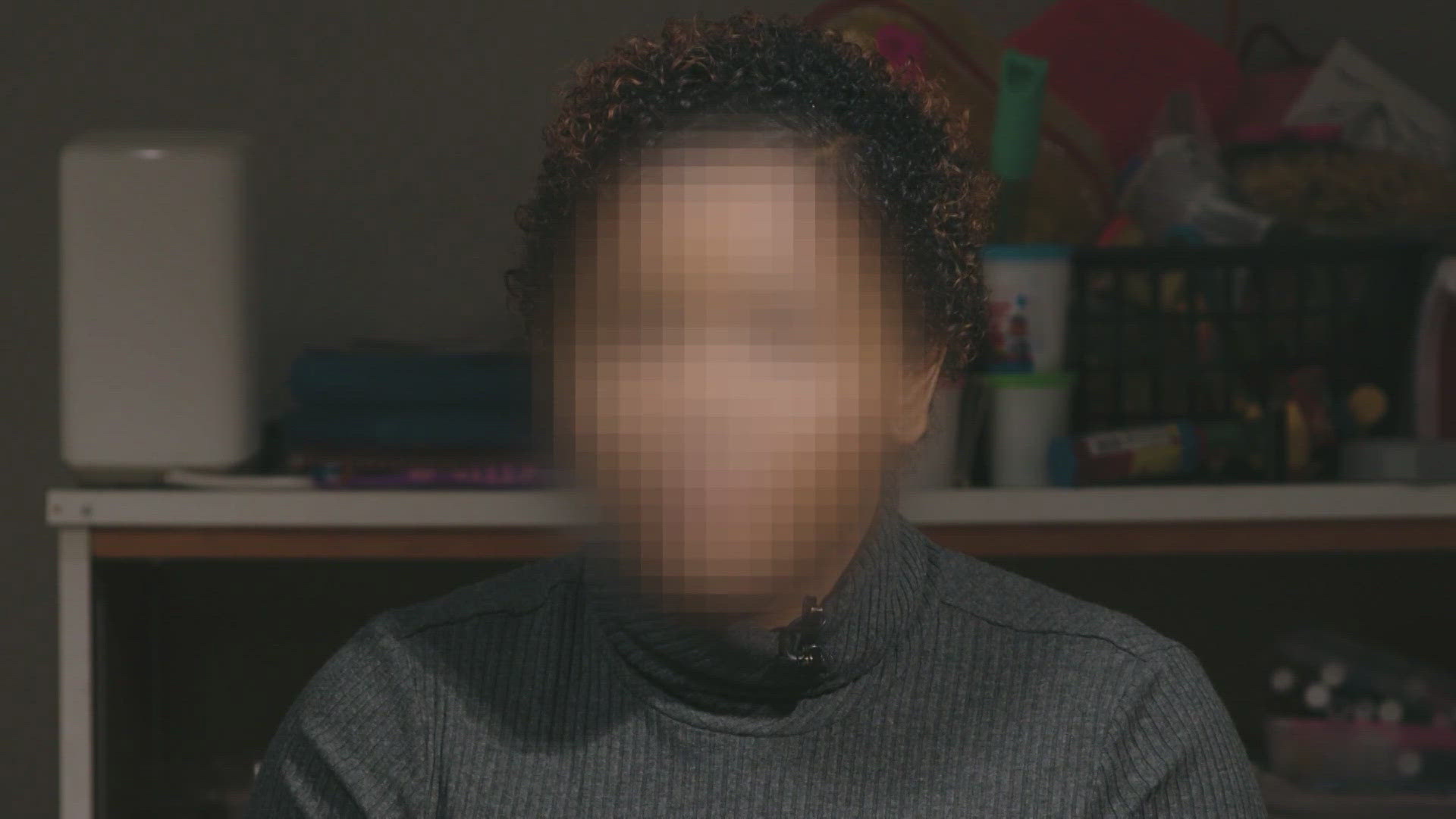TACOMA, Wash. — October is domestic violence awareness month, and KING 5's Facing Race team got an exclusive chance to hear from a woman, who is a survivor of domestic violence.
A woman, whom we are calling Jane, is speaking out less than six months since her arrival to safety in Washington.
It's rare for survivors to be so open, and while it wasn't an easy experience for Jane to speak about specifics, she said she hopes her story will give others courage.
Forty percent of Black women will experience domestic violence in their lifetime, according to the Black Women's Health Project. Jane is one of then. She fled her abuser earlier this year. They were together for seven years.
"He was dealing with some mental health issues as well as other things," she said. "And got to the point between us it was no longer safe."
People in poverty often lack resources to flee domestic violence. Seventy-one percent of Black women report living paycheck-to-paycheck compared to 63% of U.S. adults, according to a 2023 Goldman Sachs survey.
"I couldn't come to work sometimes because of the bruises, so I was calling out," Jane said. "I've been a pharmacy tech for a good three years and I was proud of myself for getting to that point regardless of what I was going through. They even told me, 'great employee, just attendance.'"
Financial struggles made Jane's situation more dangerous.
"When I lost my job, it was kind of like a back and fourth about money and other things," she said. "He had physically done some things and said a couple of things I know you can't come back from."
For Jane, the decision to leave went beyond her own safety.
"Another one of the reasons I left was my children seeing things," she said. "It was getting to the point where they had physically seen things, things that children should never see. And just would never want them to see that again."
Researchers say children exposed to domestic violence often become victims of violence.
"A lot of things you can fix with a book or a tablet or a lollipop and they're OK," Jane added. "With certain things you can't, and when you can't protect your children from seeing things, that was very detrimental."
That's why she escaped with her children to Washington. The Korean Women's Association (KWA) provided her housing and a fresh start.
"Was homeless for a couple of months, and I found the KWA shelter, and they helped me and my children out," Jane said.
KWA, despite its name, is a nonprofit that serves all communities. KWA Executive Director Cheryl Lee said the demand for their domestic violence services never seems to go down.
"I'm surprised, we are turning away people," Lee said. "I have folks from other agencies that say, 'Hey Cheryl, I have this woman in need. You guys have a room?' I have to say, 'Sorry, we're full."
Luckily Jane was able to get back on her feet through KWA and stayed at their domestic violence shelter for a while before finding her own apartment to stay in.
Jane is hiding her identity for the safety of her and her children. She said as far as she knows, her abuser is still looking for her.
"It's another reason I had to change my number. I kept getting not-nice voicemails -- I'll say that," she said. "Maybe he'll find me, maybe he won't, but I won't ever feel the way I felt yesterday. That's what I kept saying. I won't ever feel that way."
Jane, as a Black woman, is three times more likely to die as a result of intimate partner abuse than white women.
"A lot of people who knew me before the relationship can tell the difference in my demeanor," she said. "I can tell that, that's just how detrimental it was to me, my psyche, my everything."
Jane suffers from anxiety and PTSD from her abuse.
"From being on edge for six years, I think my body is always so tense," she explained. "I kind of feel triggered about something, or maybe I'm too overwhelmed, I try to get my knitting needles."
It's a new hobby she has picked up.
"It's very therapeutic and know you're sitting there, creating something," she said. "When I'm too wound up it helps me relax. I'm immersed in something so calm, I have to be calm."
Jane has a message for other people out there who might be resonating with her story.
"Those lows you feel, you can feel a 100% once you go," she said. "The things that we have gone through don't define us as women. Don't have to define us any further than what it has been and we deserve to feel safe and to feel loved."
"I know that chapter's closed and this new chapter I'm still writing," she said. "It's going to flourish."

